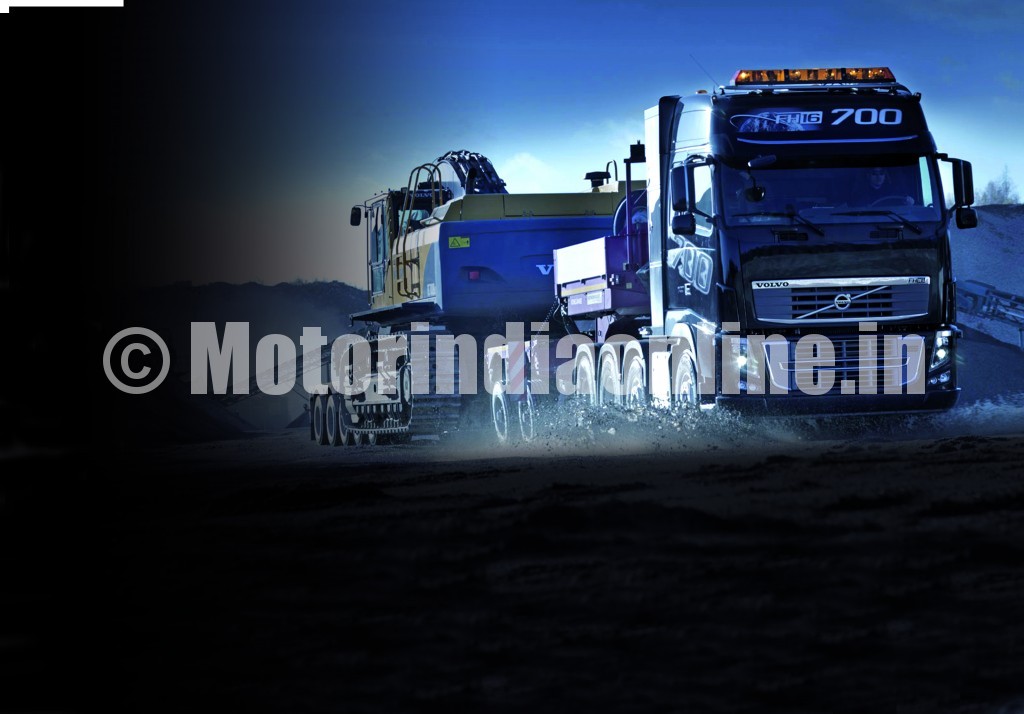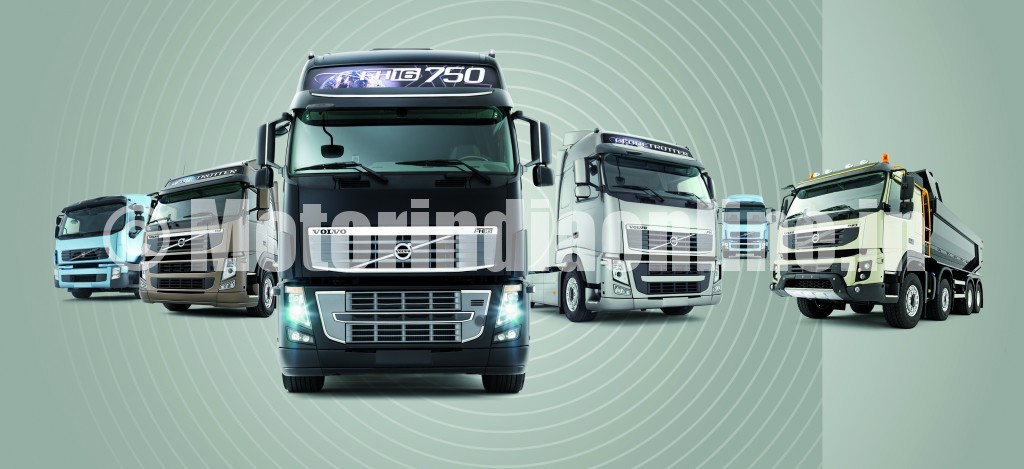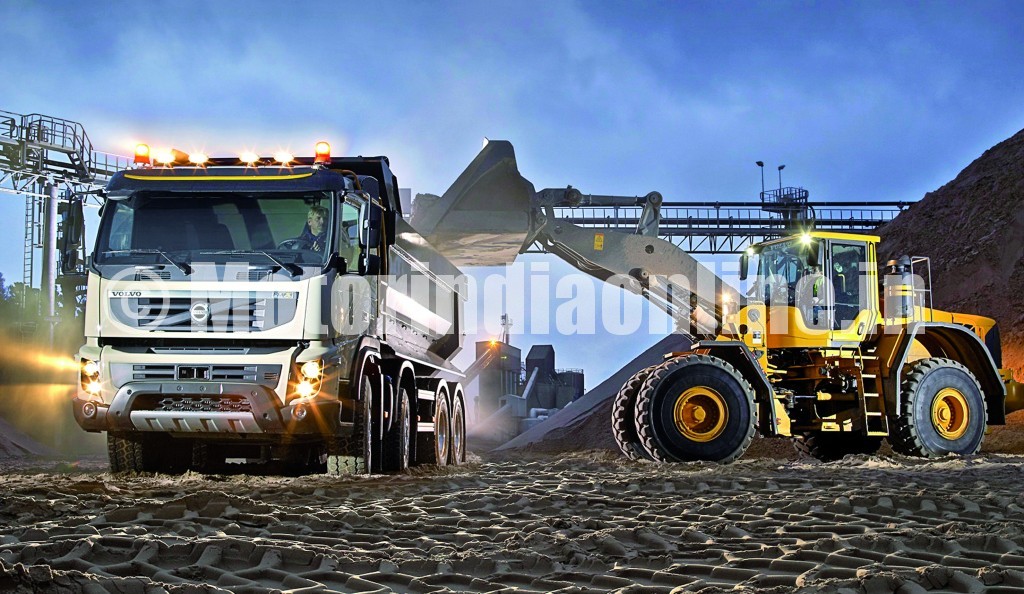Asian market assuming greater importance

Through both acquisitions and organic growth, the Volvo Group has attained a good position from which to develop further in the dynamic markets in Asia which accounted for 23 per cent of its net sales during 2012. In 2000 it was just seven per cent. The sharp increase has primarily been achieved by the acquisitions of UD Trucks of Japan (named Nissan Diesel at the time of the acquisition), the majority in Lingong of China and through the joint venture VECV in India, as also through organic growth. We examine the heavyweight’s bid to become the global numero uno in the heavy-duty truck segment.

At the beginning of 2013, the Volvo Group signed an agreement to purchase 45 per cent of the Chinese truck manufacturer Dongfeng Commercial Vehicles (DFCV), which will give it a strong presence on the Chinese truck market – the world’s largest. On completion of the transaction, the Volvo Group will become the world’s largest manufacturer of heavy duty trucks.
This is a very exciting venture that will combine the best of two worlds: strengthening the positions of the Volvo Group and Dongfeng and offering excellent opportunities to both parties, says Volvo’s President and CEO Olof Persson.
Combining Dongfeng’s strong domestic position and know-how with the Volvo Group’s technological expertise and global presence will offer DFCV an excellent opportunity for growth and profitability in and outside China.
Completion within a year
Completion of the transaction is subject to certain conditions, including approval by the relevant anti-trust agencies and Chinese authorities. The purchase consideration amounts to RMB 5.6 billion. The objective is to complete the transaction as soon as possible, within about 12 months. Payment of the purchase price will increase Volvo’s net debt by approximately SEK 6 billion.
The Volvo Group is the world’s third largest manufacturer of heavy duty trucks with 180,000 units sold in 2011. Dongfeng was the second largest producer of heavy duty trucks in 2011, with total sales of 186,000 units, of which approximately 142,000 units were produced by that part of the company which will be included in DFCV. “We are pursuing a clear strategy to achieve our vision of becoming the world leader in sustainable transport solutions”, says Olof Persson. “With this agreement in place, we take a crucial step toward reaching a number of our key strategic objectives such as size and growth in Asia”.

World’s largest truck market
During 2012, the Chinese market for heavy duty trucks totalled approximately 636,000 vehicles, while the corresponding figure for the medium duty market was 290,000 vehicles. DFCV occupied a leading position in China in both the heavy and medium-duty segments, with sales of 102,000 heavy duty trucks and 45,500 medium duty trucks, corresponding to market shares of 16.1 per cent and 15.7 per cent respectively.
The partnership with DFG not only provides the Volvo Group with ownership in the largest heavy duty and medium duty truck manufacturer in China, but also offers excellent opportunities to achieve economies of scale in terms of sourcing, development and production for the group’s truck operations. There are a number of areas in which co-operation is planned between DFCV and the Volvo Group, such as engines and powertrain components, product platforms and purchasing.
“In Dongfeng, we have a partner that we know well, having worked together for several years, and with a management team and a product range that we really appreciate”, says Olof Persson. Joining forces will provide clear benefits for both parties and the right conditions to develop DFCV into a competitive and successful international truck manufacturer with healthy profitability.

Investments in India
During the year, VECV, the joint venture with Eicher Motors, strengthened its position in the Indian market. The total market for trucks and buses above 5 tons decreased by 12 per cent, but VECV’s deliveries remained at the same level as the previous year and the market share rose to 12.7 per cent (11.1), the highest so far. Within buses Eicher’s share rose to 11.9 per cent (9.7), for trucks of 5-14 tons to 31.4 per cent (30.5) and in the heavy duty segment over 16 tons to 3.9 per cent (3.1).
VECV continues to invest in India. During 2012 and the next few years, some SEK 2 billion is invested in a new factory for medium-duty engines that will be up and running in 2013, a new paint shop, tooling for new products and a new facility for bus chassis. The investment also covers research and development related to a number of new products to be launched in the next few years. The investments are made with funds already with VECV and with the company’s future cashflow.
Furthermore, Volvo India invests approximately SEK 2.5 billion in the next few years, among other things, in a new factory in Bangalore for production of the new truck series planned for the value segment. In addition, investments are made in the development of new products and in a new office in Bangalore where backoffice functions that were previously spread out over the city are to be gathered.
Volvo Buses strong in India
Volvo Buses has a strong position in India and is one of the most well-known brands on the market. In total, 4,500 buses from Volvo are in operation in the country. Volvo’s city buses run in 13 cities, and in the coaches segment, the company is represented on all important routes. During the year a number of new models were launched, among them the long-distance coach Volvo 9100 which opens up new market segments and increases the potential for growth.
In Japan the total market for heavy duty trucks in 2012 rose by 28 per cent to 31,800 vehicles (24,800) partly driven by government incentives as well as the need for trucks for reconstruction work following the earthquake and the tsunami. For 2013, the total Japanese market is expected to increase to about 35,000 heavy duty trucks on the back of expectations of higher economic activity following the government offer of stimulus and a weaker currency.
In India, the total 2012 market for heavy duty trucks declined by 18 per cent to 195,140 trucks (237,300). In China the largest part of net sales stem from construction equipment. The Chinese construction equipment market continued to weaken in 2012 and declined by 37 per cent (+7 per cent). In Asia, outside of China, the market for construction equipment grew by 11 per cent (28). For 2013 the total market growth in China is expected to be in the range of minus 5 per cent to plus 5 per cent. Asia, excluding China is expected to decline by 0 per cent to 10 per cent.
Volvo CE number 1 in China
With a volume totaling 248,000 wheel loaders and excavators in 2012, the Chinese market is by far the world’s largest, and the Volvo Group is the No.1 in these segments. During 2012 Volvo CE with the brands Volvo and SDLG had a combined market share of 15.0% (12.0) within wheel loaders and excavators. That increased the distance even further to the number two on the market.
Part of Volvo CE’s strategy is to develop products for growth markets under the Volvo brand. In November 2012, the medium heavy wheel loader Volvo L105 was launched. It was developed specifically to meet the needs of customers in China.
Since 1998, Volvo CE’s main facility for development and manufacture of excavators is situated in Changwon, South Korea. Sunwin, leading within large electric buses China is a large market for electric buses. Currently there are 1,700 large (over 10 metres) electric buses in China, an increase of 1,000 buses during 2012 alone. Here Sunwin Bus, a Volvo Buses and SAIC Motor joint venture, has a market share of approximately 40 per cent. During the year, Sunwin Bus delivered 3,250 units, 512 of which were the so-called new energy buses and 413 fully electric. That made Sunwin leading in China and a world-leading supplier of large, fully electric buses in 2012.
In the next few years, the Volvo Group plans to launch a new series of trucks in the so-called value segment, i.e., the lower price segment, in emerging markets of Asia, South America and Africa. Production is underway in Thailand and India. The group also intends to manufacture these trucks for the Chinese market in the joint venture DND.
In Japan, a voluntary leave program was launched with the aim of reducing costs by 10 per cent to improve competitiveness. Compared with mid-2012, the organization was reduced by 1,000 employees and consultants as of January 1, 2013. At the beginning of 2013, a program to improve total efficiency in the Japanese production system was launched.